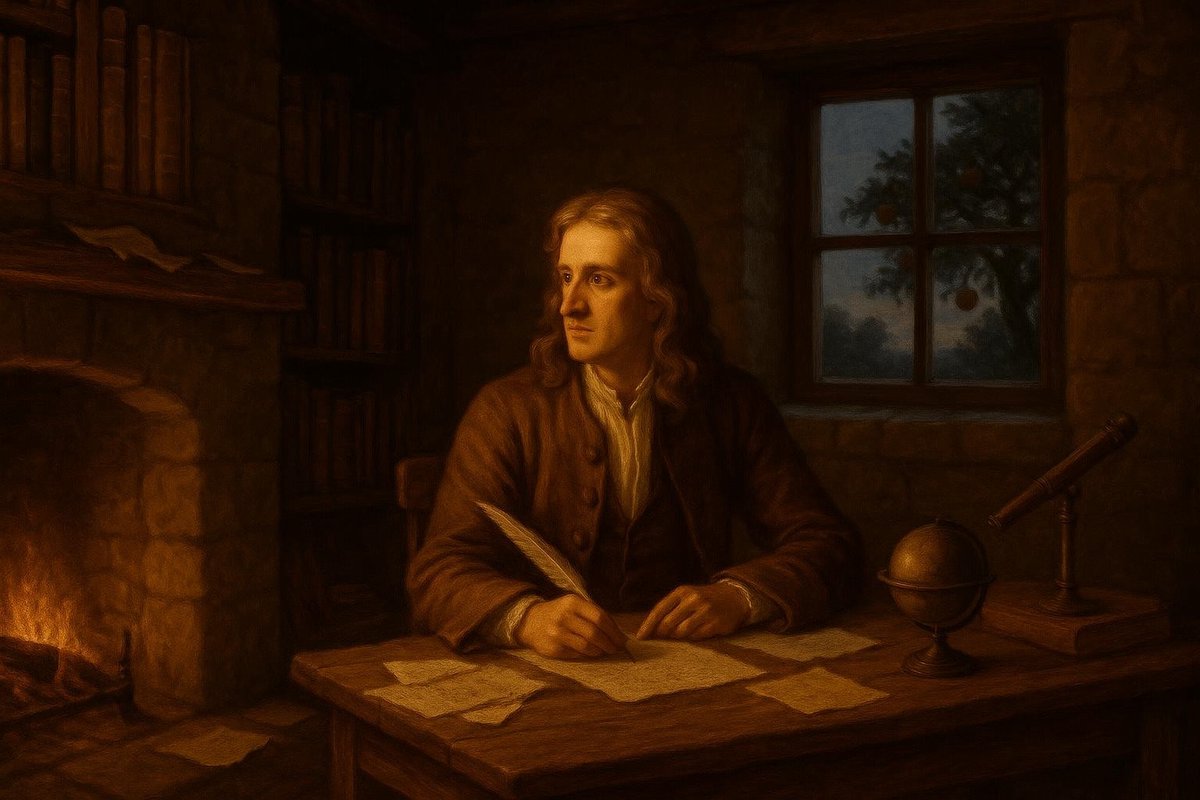
Introduction
Imagine a young man in isolation, surrounded by nature’s perplexing whispers. This was Isaac Newton during the plague years, a time when the world seemed to stand still, but his mind was a storm of ideas. Newton’s journey in solitude led to some of the most groundbreaking discoveries in mathematics and physics. As we explore this magical solitude, we unravel how his quiet contemplation birthed the language of the universe—calculus—and the immutable laws of motion.
The Quiet Birth of Calculus
Many people believe that great ideas are born in bustling environments, yet Newton’s story teaches us otherwise. In his isolation, the seeds of calculus were planted.
- In the tranquil settings of the countryside, Newton saw the world as a grand stage of motion.
- He pondered how objects changed over time, inspired by falling apples and the arcs of celestial bodies.
Interestingly, calculus became the language through which the universe could converse with us, turning complex movements into comprehensible equations. Like a painter with a new palette, Newton could now capture the infinite dance of planets and projectiles with precise strokes of mathematics. This introspection mirrored the world’s patterns and rhythms, transforming them into a framework that even today, guides engineers, economists, and scientists alike.
The Laws of Motion: A Universal Symphony
In solitude, Newton composed another masterpiece: the laws of motion. These laws can be seen as the musical notes of the universe’s grand symphony, defining the harmony of movement and force.
- Newton’s First Law introduced the idea of inertia, explaining how objects remain at rest or in uniform motion unless acted upon.
- The Second Law quantified force, linking it directly to mass and acceleration, much like a conductor guiding an orchestra.
- His Third Law, often summarized as “action and reaction,” highlighted the interconnectedness within the cosmic dance.
Of course, these weren’t just abstract thoughts; they were Newton’s attempt to decode the ballet of nature. Much like a composer understands each instrument’s role in a symphony, Newton grasped how forces interacted, revealing the predictable patterns of motion in a seemingly chaotic world.
Introspective Solitude: The Secret Ingredient
As time goes on, we see that solitude wasn’t merely a backdrop for Newton’s achievements; it was the catalyst.
- In the quiet, Newton could focus deeply, reaching insights that might otherwise be drowned out by the noise of society.
- His solitude provided the mental space needed to connect disparate observations into a cohesive understanding of the universe.
No wonder many great thinkers have found clarity in solitude. Newton’s reflections, unfettered by external distractions, allowed him to see the underlying order of the world. Much like a sculptor observing a block of marble, recognizing the statue within, Newton’s solitude enabled him to chip away at the chaos, shaping the elegant laws of nature.
The Legacy of Newton’s Solitude
Newton’s introspective solitude didn’t just give rise to calculus and the laws of motion; it laid the groundwork for future scientific revolutions.
- His work provided a new framework for understanding the physical world, influencing generations of scientists.
- By showing how mathematics could explain natural phenomena, Newton opened the door to the modern scientific method.
Newton’s solitude wasn’t a withdrawal from the world; it was a journey into the depths of understanding, emerging with treasures that continue to enrich our lives. Today, his legacy is a reminder that sometimes, stepping away from the noise is the first step towards groundbreaking insight.
Conclusion
Isaac Newton’s solitude was not an escape but an embrace of the universe’s mysteries. Through quiet contemplation, he deciphered the language of the cosmos, gifting us with calculus and the laws of motion. These discoveries continue to underpin the advances in science and technology that shape our world.
Fuel Someone Else’s Curiosity
If Newton’s journey through introspective solitude has piqued your interest, why not share this article with a friend? By spreading the word, you may just inspire someone else’s curiosity. Let’s keep the spirit of discovery alive—after all, the next breakthrough might be just a moment of solitude away.

Leave a Reply